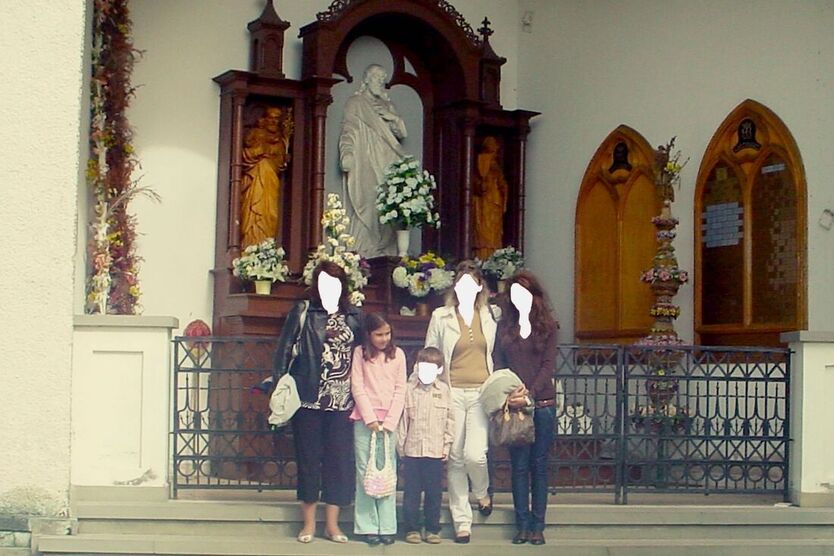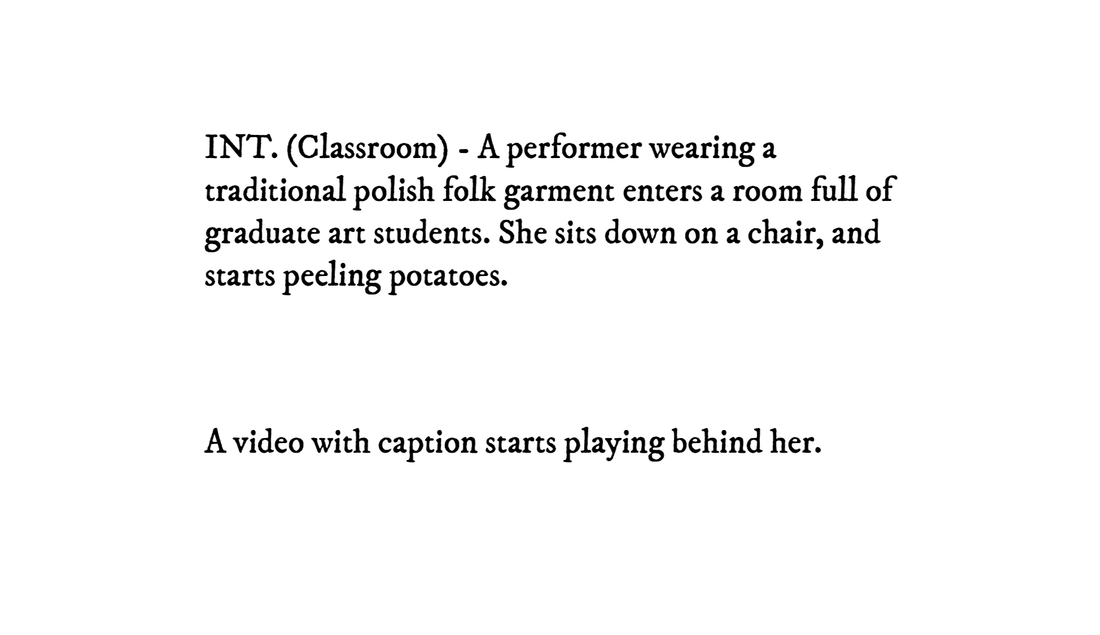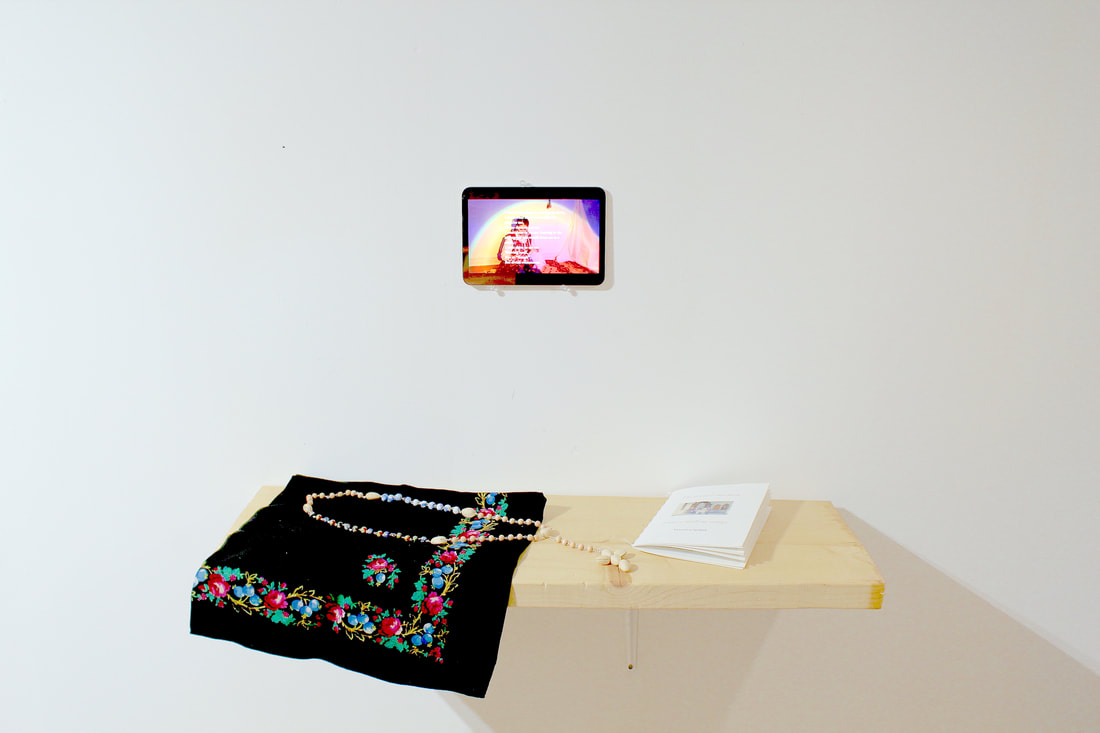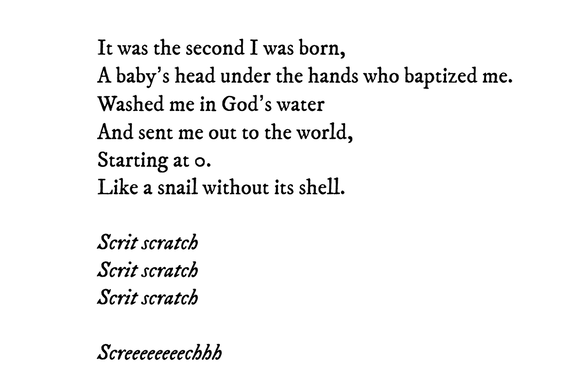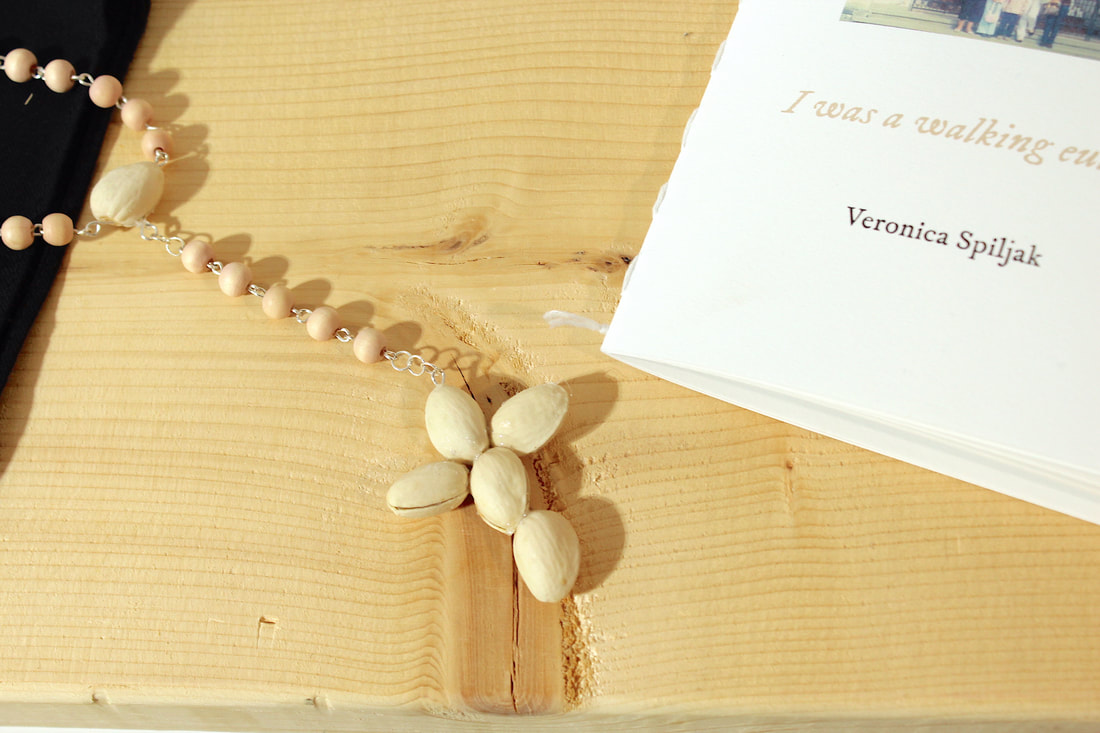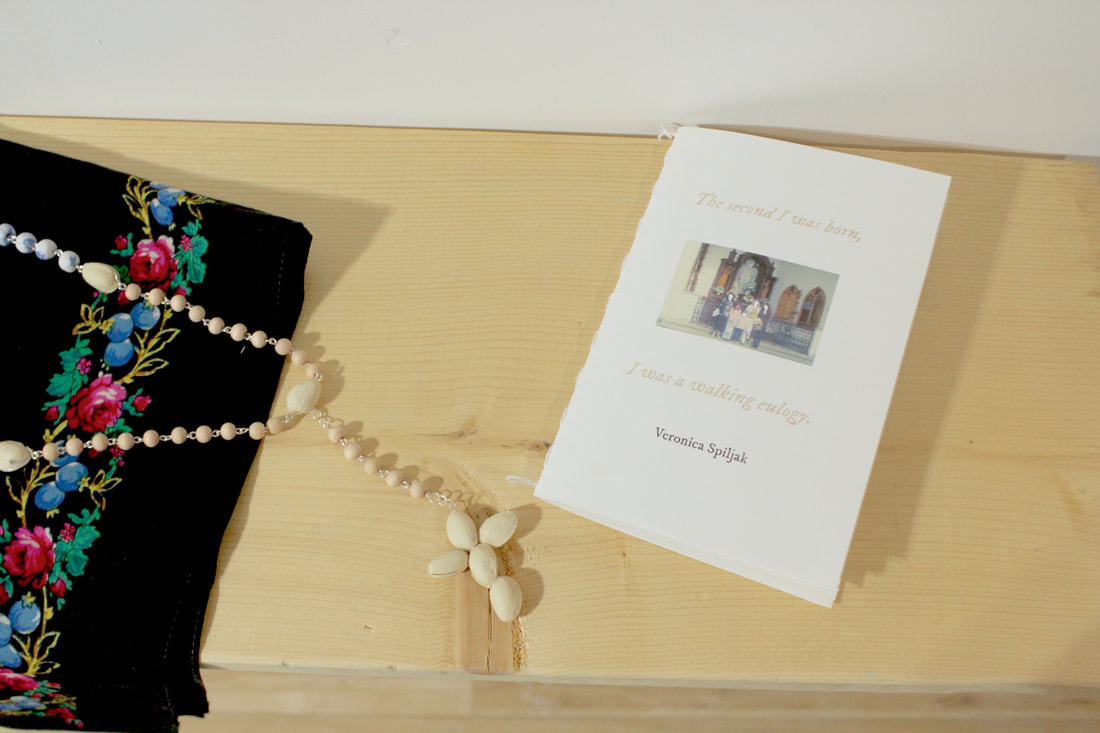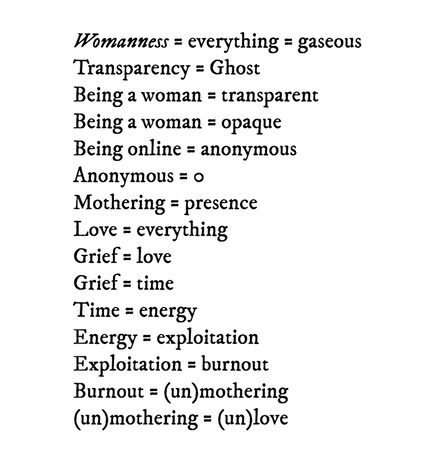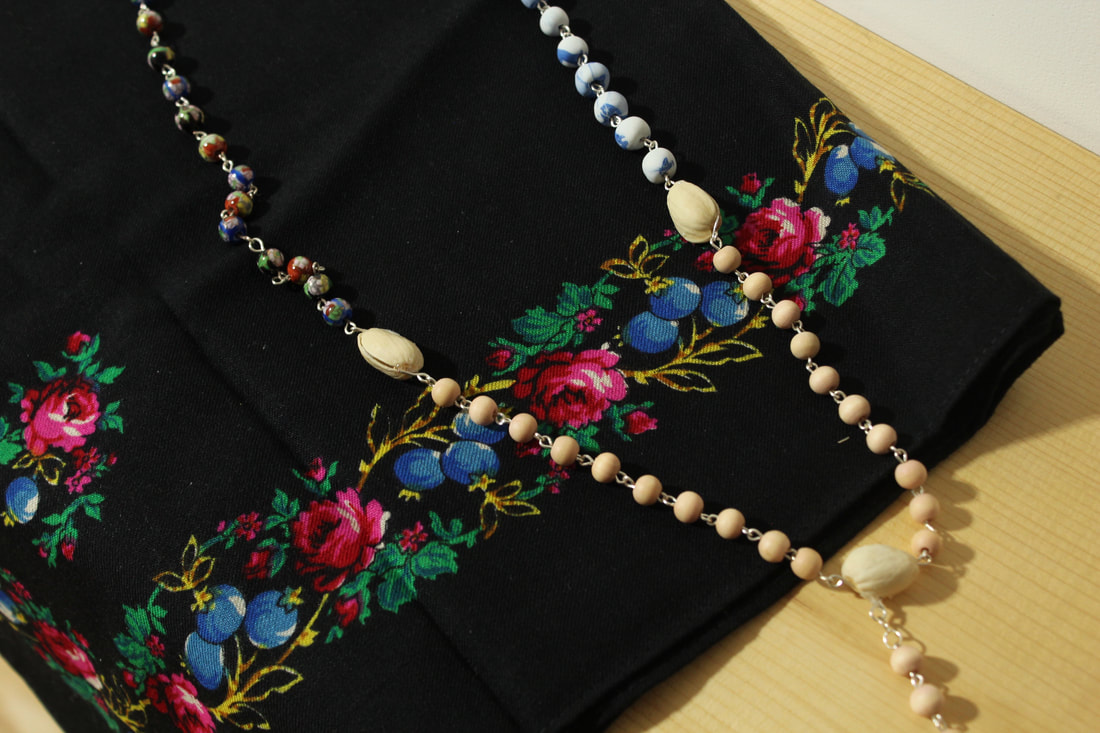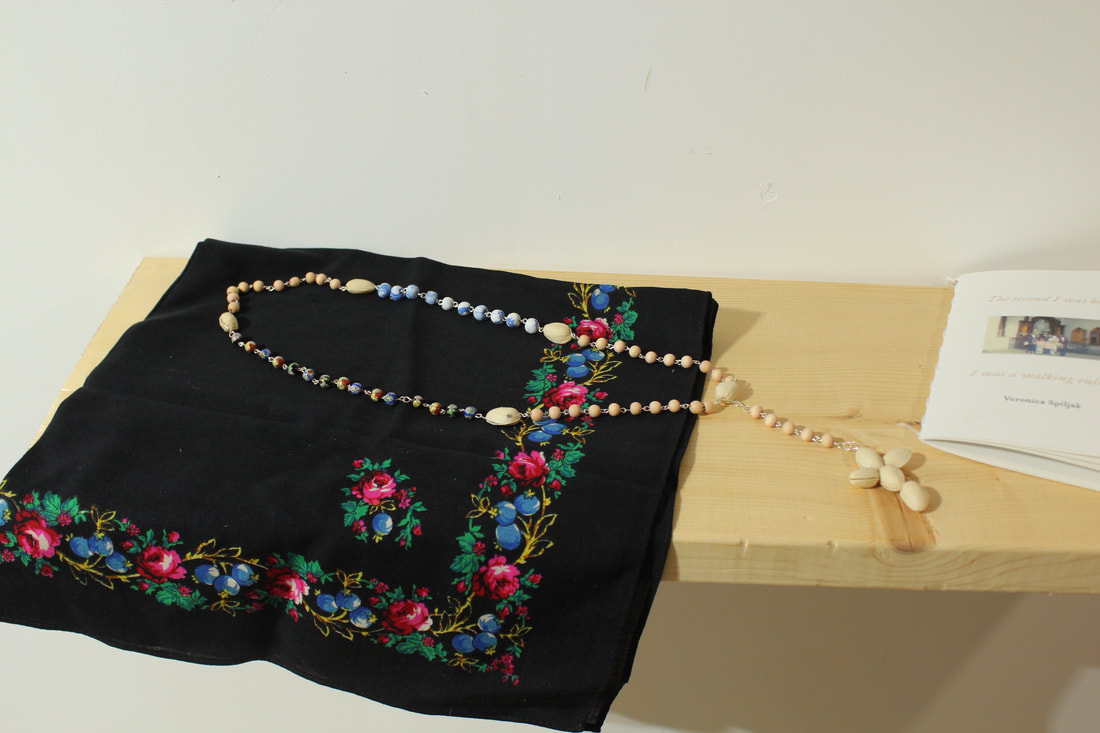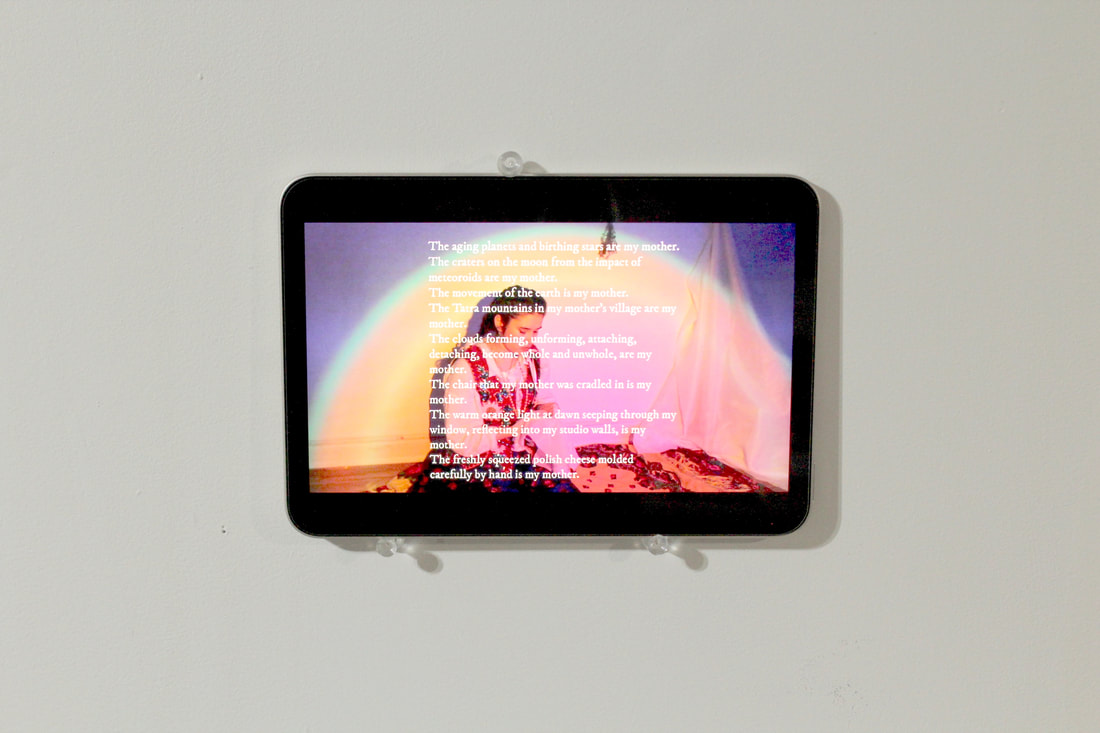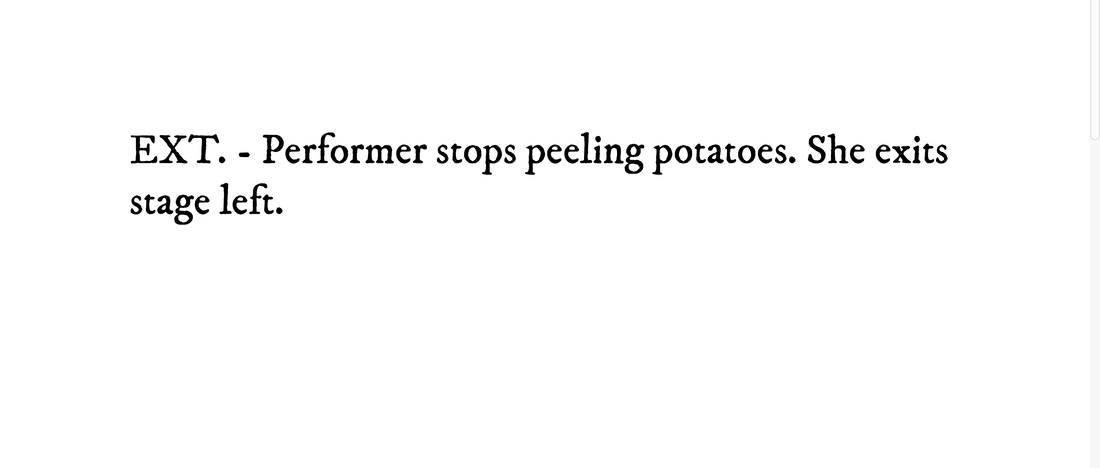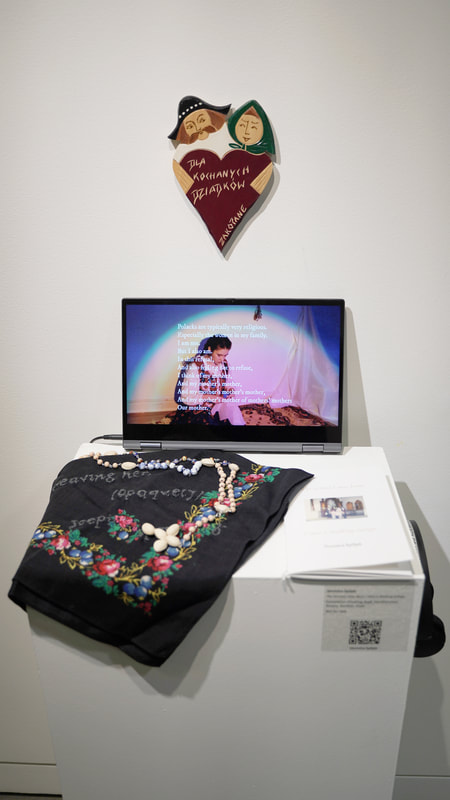The Second I Was Born, I Was A Walking Eulogy.
Embroidered handkerchief, Rosary, Video, Poetry Booklet, 2023
|
|
|
|
In Spiljak’s installation The Second I Was Born, I Was A Walking Eulogy, encapsulates her own rendition of a praying space that weaves together narratives in the form of precious objects and video as a way to connect to her own vulnerable experiences and passing thoughts as first-generation Polish-Canadian woman. The installation set-up assembles religiously significant objects supposed to resemble a prayer corner, normally set up as an intimate physical space reserved for morning prayers. These memorabilia are often seen at home by the women in Spiljak’s family. A prayer corner in a domestic space, like a home, is used to remind one to commit to the Catholic faith. The carefully selected objects provide context to the dedication and connection to Catholicism that these women had despite its historical and biblical beliefs that objectify and ostracize them. Most of these objects are handmade; the floral Polish handkerchief that passed down from my grandmother, the rosary with pistachios and the sewn poetry booklet. The video performance on the tablet depicts Spiljak wearing a traditional Polish folk garment sewing while reciting the words taken from the poetry booklet. She embodies and performs as her mother, her grandmother, her mother’s mother and her mother’s mother. Weaving these experiences, with the stories of her maternal ancestors, Spiljak is reclaiming her identity and autonomy from patriarchal control. Sewing slowly, becomes a powerful act that is counterproductive to the capitalist agenda. She questions looking at possible futures beyond systems that promote burnout, exhaustion, dissociation by looking to our personal histories. Could we look to our own communities as a form of healing? In what ways can indoctrination link to governance of bodies? How can we honor the maternal figures in our family who have been conditioned by religious or family values, unpaid labour and the societal gender roles surrounding their upbringing? In what ways does this affect us as daughters of immigrant parents? By recreating these precious, domesticated objects, Spiljak envelopes a love letter for the women in her family while weaving and forming new histories that connect and create new values for the future generation of women to come. |
|
|
|
Your browser does not support viewing this document. Click here to download the document.
|
|
©
2023 Veronica Spiljak, All Rights Reserved

